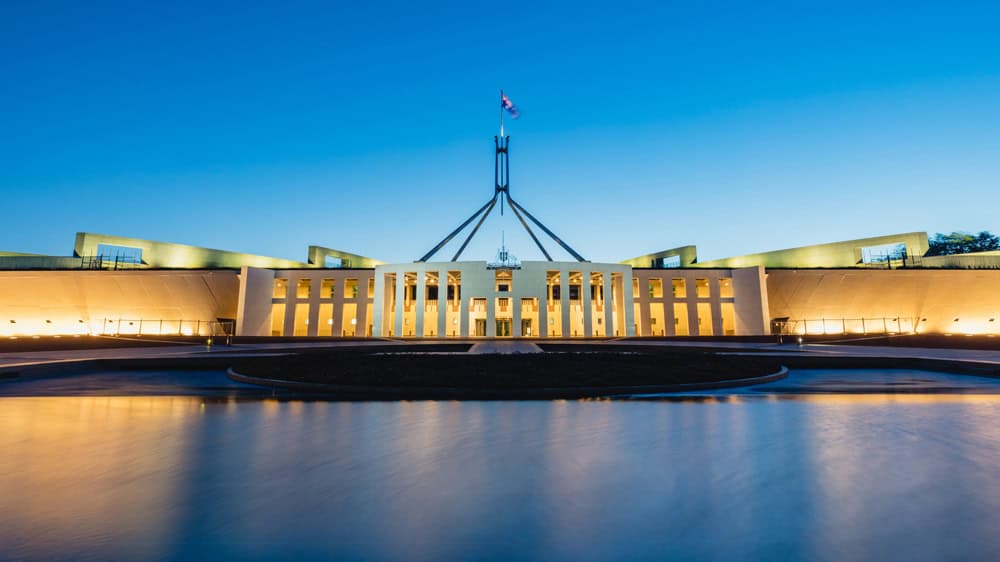Diabetes Australia has welcomed recommendations from the Parliamentary Inquiry into Diabetes that will help arrest the diabetes epidemic in Australia.
Twenty-three key recommendations are included in the comprehensive report tabled today by the Health, Aged Care and Sport Committee following its landmark Inquiry into Diabetes.
Speaking from Parliament House in Canberra, Diabetes Australia Group CEO Justine Cain said after decades of calls for more diabetes prevention measures including food labelling and a levy on sugary drinks, these were welcome recommendations.
“The Parliamentary Inquiry into diabetes has shone a light on Australia’s diabetes epidemic,” Ms Cain said.
“This report includes a comprehensive package of measures that can really make a difference, and we need to see them implemented together. There is no single solution; we need strong action on all fronts.
“For many years Diabetes Australia has strongly advocated for prevention, care and research measures like those recommended in this report.
“Investment in access to healthy food; a levy on sugary drinks; and a ban on junk food advertising to children, are all issues we have long been calling for, and we’re pleased that the Committee has responded to those calls.
“Diabetes Australia also supports the recommendation for comprehensive economic analysis to be undertaken about the direct and indirect cost of diabetes,” Ms Cain said.
The Committee included recommendations regarding expanding subsidised access to insulin pumps for people living with type 1 diabetes, as well as continuous glucose monitoring (CGM) devices for people living with type 2 and type 3c diabetes requiring regular insulin, and people with gestational diabetes.
“Diabetes technologies change people’s lives and that’s why we have been calling for the government to invest in equitable access to them,” Ms Cain said.
“The committee’s recommendations about access to technology are critically important.
“We would like to see insulin pumps subsidised for all people living with type 1 diabetes, and we’ll be engaging with government about how to do that in a staged, affordable way.
“Likewise, we have been calling for subsidised access to CGM for people living with type 2 diabetes, particularly people using insulin and other vulnerable groups such as pregnant women, people under 21, and Aboriginal and Torres Strait Islander people,” Ms Cain said.
With an estimated 2 million Australians living with all types with diabetes, the committee’s recommendations will provide a roadmap to address diabetes prevention and management.
Other committee recommendations that were advocated for by Diabetes Australia and are strongly supported include:
- Increased funding for diabetes research;
- Workforce investments including expanded MBS subsidies, items numbers for allied health consultations, and access to diabetes educators;
- Food labelling reforms that target added sugar;
- Public health campaigns;
- National diabetes screening programs;
- Ensuring that the revised Australian Dietary Guidelines include clear advice for Australians living with diabetes.
“We need to act decisively and collectively. The time for bold action is now,” Ms Cain said.
“We look forward to working with the government as it responds to the Committee’s recommendations.”
About the Parliamentary Committee’s Diabetes Inquiry:
The Parliamentary Committee was tasked with examining issues related to diabetes prevention, treatment, and management in Australia. Comprising bipartisan members of Parliament and supported by expert advisors, the committee, chaired by Dr Mike Freelander MP, examined the current landscape of diabetes prevention, treatment, and management.
The inquiry was referred by the Hon Mark Butler MP, Minister for Health and Aged Care, in May 2023, and received evidence from people living with diabetes, advocacy groups, healthcare professionals, and researchers.
More than 450 submissions were received by the committee.
Diabetes Australia, along with Australian Diabetes Society and Australian Diabetes Educators Association, gave evidence at the Inquiry’s public hearings and made four joint submissions:

